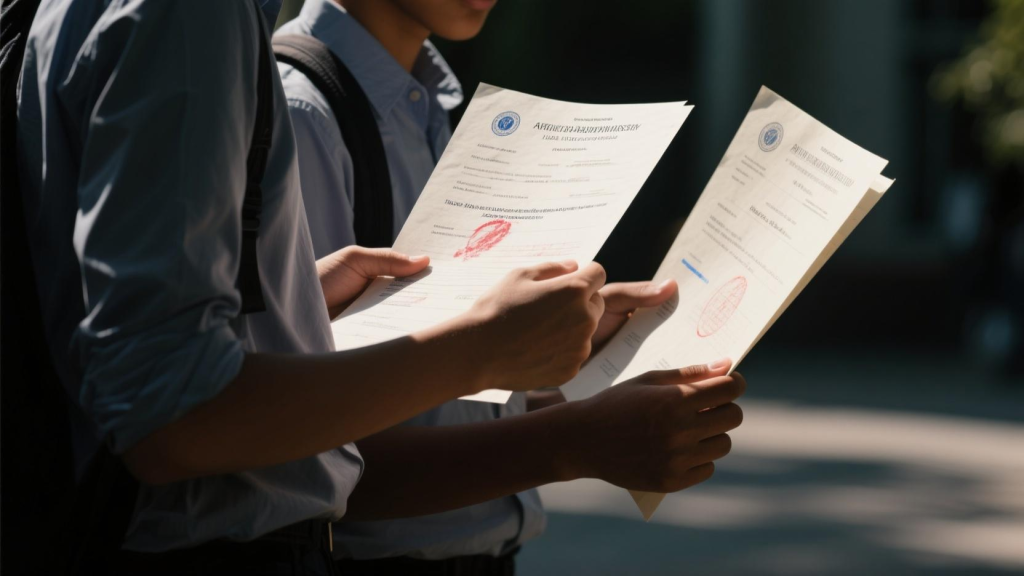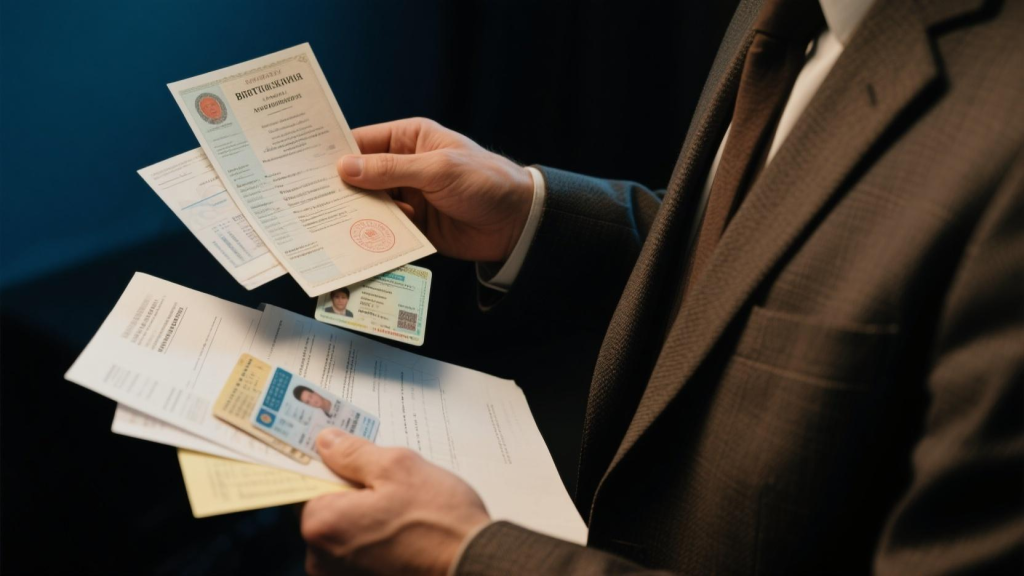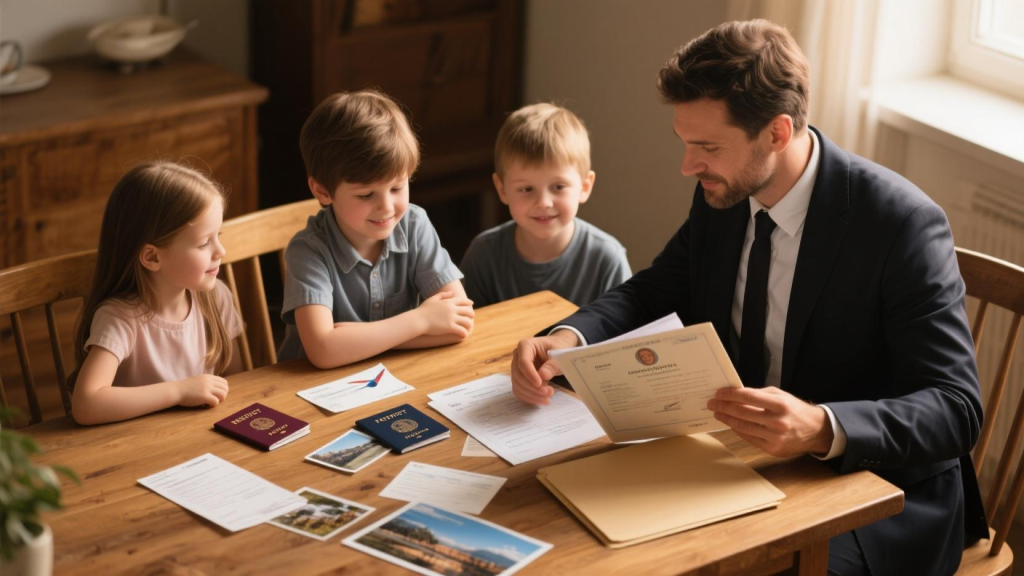Introduction: More Than Just a Piece of Paper
A birth certificate is one of the first official documents you receive in life—often before you can walk or talk. It’s easy to overlook how powerful this single document can be. But make no mistake: your birth certificate isn’t just a historical record of when and where you were born—it’s a key to your legal identity, civil rights, and access to essential services.
Whether you’re a student, a parent, an international traveler, or just handling paperwork, it’s important to understand what a birth certificate can do, why you need it, and how it shapes your connection to society.

1. Proving Legal Identity
The most fundamental use of a birth certificate is to prove who you are.
Your birth certificate is often the first legal record of your existence. It typically includes:
- Your full name
- Date and place of birth
- Parents’ full names
- Registration number or certificate number
- Official signature or stamp from a registrar
This document is considered a primary identity record. Other IDs—like your passport or driver’s license—are built on this foundational proof. It’s what allows you to legally exist in the eyes of your government.
2. Getting Other Forms of ID
Need a passport? Want to apply for a state-issued ID or driver’s license? Almost every major identification process begins with your birth certificate.
Here are examples of where it’s required:
- Passport applications (first-time issuance)
- Driver’s license issuance or renewal
- National ID registration (in some countries)
- School or university enrollment
- Immigration documentation
In essence, your birth certificate is often used to create a chain of identification—each ID verifying the last.
3. Proving Citizenship or Nationality
In many countries—like the U.S., Canada, or the UK—a birth certificate serves as legal proof of citizenship.
For example:
- If you were born in the United States, your birth certificate confirms you’re a U.S. citizen by birth.
- If you’re born abroad to citizens of a country, you might need to present your foreign birth certificate for citizenship through descent.
In immigration cases, travel applications, or residency disputes, your birth certificate plays a key role in proving your right to reside, vote, work, and study.
4. Accessing Education
If you’re enrolling in school for the first time—especially as a child or international student—your birth certificate may be required to:
- Verify your age
- Place you in the right grade level
- Confirm your eligibility for education funding or programs
Universities may also request it during student visa applications, especially in regions where identity or age matters legally.

5. Applying for a Social Security Number or National ID
Many governments require a birth certificate before issuing you a Social Security Number (SSN), National Insurance Number, or Tax Identification Number.
These numbers allow you to:
- Work legally
- Pay taxes
- Access public healthcare or pensions
- Register for financial services
No birth certificate = no official number = limited access to essential services.
6. Getting a Job or Opening a Bank Account
When applying for a job—especially your first one—you often need to provide proof of age and identity. A birth certificate, alongside other IDs, helps fulfill this requirement.
Banks, too, might require your birth certificate if:
- You’re under 18 opening a student account
- You’re applying for joint accounts with parents
- You’re trying to prove your identity during a legal name change

7. Proving Family Relationships
Your birth certificate lists your parents’ names, which makes it one of the few documents that legally proves your biological relationship to your mother and (usually) father.
This is useful when:
- Applying for inheritance or legal claims
- Registering for family benefits or healthcare
- Proving guardianship or custody
- Applying for dual citizenship based on ancestry
In legal disputes or immigration processes, a certified copy of your birth certificate is often used to prove family ties.
8. Marriage and Divorce Documentation
Planning to get married? In many countries, especially for international marriages or religious ceremonies, you’ll need to submit your birth certificate to prove:
Your age (to confirm you’re of legal marrying age)
Your single/married/divorced status (combined with other legal documents)
In divorce cases, birth certificates are often reviewed when children are involved to confirm legal guardianship and parenthood.
9. Traveling Internationally
If you’re traveling with children or without one or both parents, border officials may ask for a birth certificate to prove relationships.
For instance:
When a child is flying with one parent, airlines or customs may request the child’s birth certificate to ensure both parents have consented to travel.
For minors applying for passports, their birth certificate is a must-have document.

10. Emergency Situations & Legal Matters
Natural disasters, refugee situations, and emergencies often leave people without proper ID. In such cases, a certified birth certificate copy can be a crucial tool to:
- Re-establish identity
- Apply for aid or relief programs
- Access emergency funds
- Rebuild documentation lost during a crisis
In legal cases—like name disputes, paternity suits, or custody battles—a birth certificate may be presented in court as evidence of identity or parentage.
Final Thoughts: Keep It Safe, Keep It Handy
A birth certificate is not just a childhood document—it’s your lifelong companion for everything from schooling to traveling, voting, working, and proving who you are.
That’s why:
- You should keep the original in a safe place (like a locked drawer or safe box).
- Always use certified copies when applying for official processes.
- If you lose it, request a replacement from your country’s vital records office.
It’s easy to take it for granted—but your birth certificate is one of the most important documents you’ll ever own.
Have You Ever Needed Your Birth Certificate for Something Unexpected?
Share your experience in the comments and let others learn just how useful this document can be!